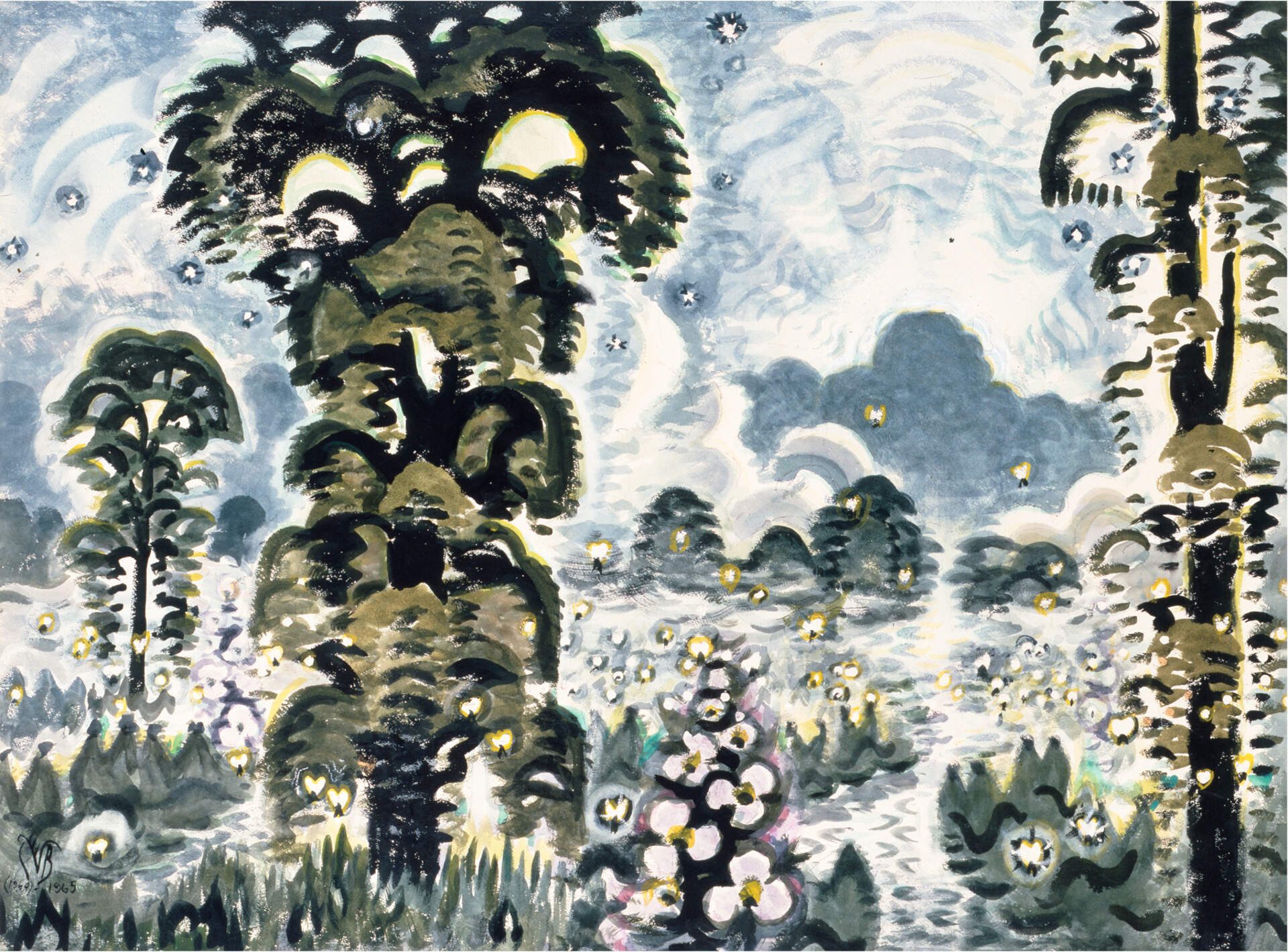Charles E. Burchfield (1893-1967)Fireflies and Lightning
1964-65
watercolor, graphite and white charcoal on paper
40 x 54 inches
Burchfield Penney Art Center, Purchase made possible with funds from M&T Bank, an anonymous donor, William P. and A. Laura Brosnahan, the Vogt Family Foundation and the Margaret L. Wendt Foundation, 1998
"The most beautiful things of the evening are the fireflies. They arise on all sides in droves of millions. Once I paused while down the creek; I looked westward and gasped with the beauty. As if by some preconceived plan they all flashed simultaneously. It was like some wonderful strain of music. They rivaled the starry sky in splendor. Blackness of night accentuates them." — Charles E. Burchfield, Journals, June 13, 1914
Walt Whitman, "A JULY AFTERNOON BY THE POND," Specimen Days
The fervent heat, but so much more endurable in this pure air—the white and pink pond-blossoms, with great heart-shaped leaves; the glassy waters of the creek, the banks, with dense bushery, and the picturesque beeches and shade and turf; the tremulous, reedy call of some bird from recesses, breaking the warm, indolent, half-voluptuous silence; an occasional wasp, hornet, honey-bee or bumble (they hover near my hands or face, yet annoy me not, nor I them, as they appear to examine, find nothing, and away they go)—the vast space of the sky overhead so clear, and the buzzard up there sailing his slow whirl in majestic spirals and discs; just over the surface of the pond, two large slate-color’d dragon-flies, with wings of lace, circling and darting and occasionally balancing themselves quite still, their wings quivering all the time, (are they not showing off for my amusement ?)—the pond itself, with the sword-shaped calamus; the water snakes—occasionally a flitting blackbird, with red dabs on his shoulders, as he darts slantingly by—the sounds that bring out the solitude, warmth, light and shade—the quawk of some pond duck—(the crickets and grasshoppers are mute in the noon heat, but I hear the song of the first cicadas ;) —then at some distance the rattle and whirr of a reaping machine as the horses draw it on a rapid walk through a rye field on the opposite side of the creek—(what was the yellow or light-brown bird, large as a young hen, with short neck and long-stretch’d legs I just saw, in flapping and awkward flight over there through the trees?)—the prevailing delicate, yet palpable, spicy, grassy, clover perfume to my nostrils; and over all, encircling all, to my sight and soul, the free space of the sky, transparent and blue—and hovering there in the west, a mass of white-gray fleecy clouds the sailors call “shoals of mackerel”—the sky, with silver swirls like locks of toss’d hair, spreading, expanding—a vast voiceless, formless simulacrum—yet may-be the most real reality and formulator of everything—who knows?
